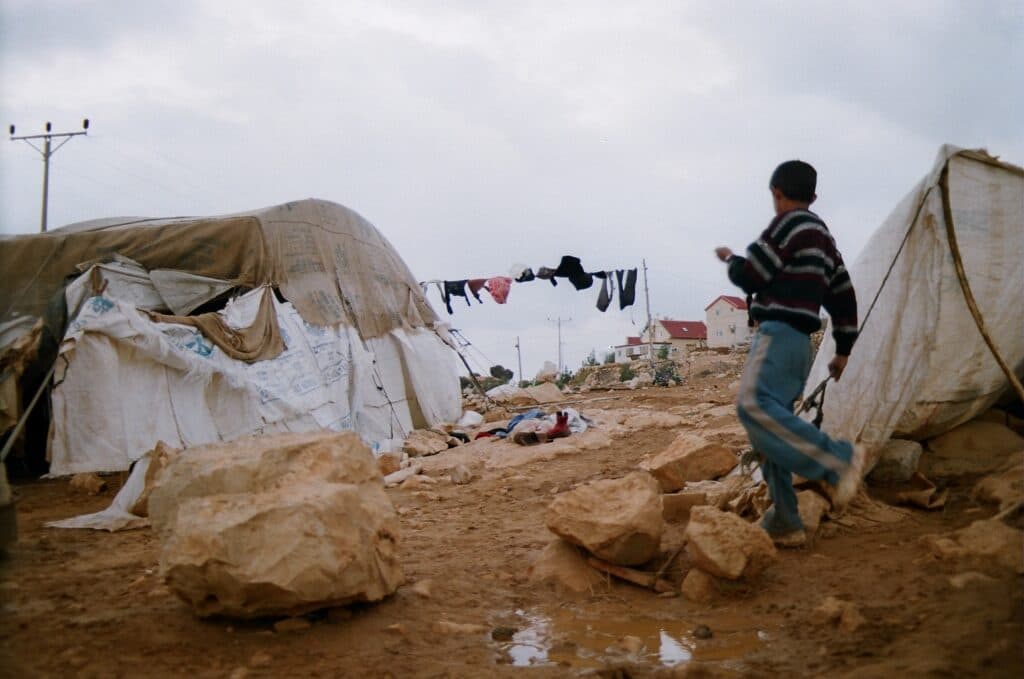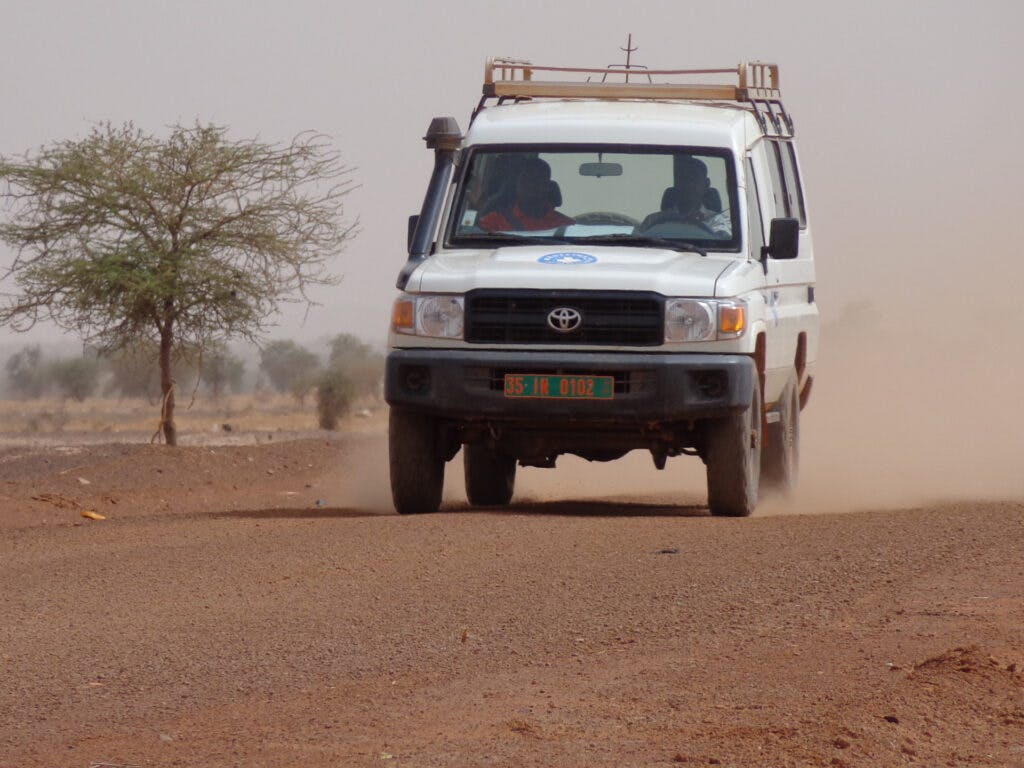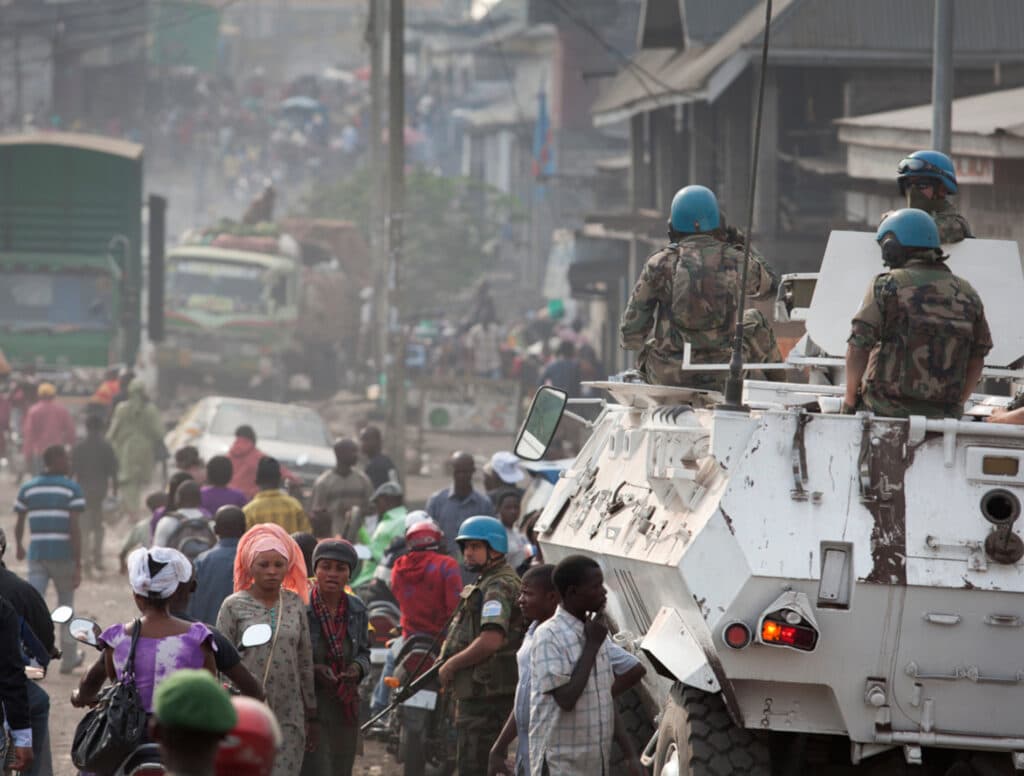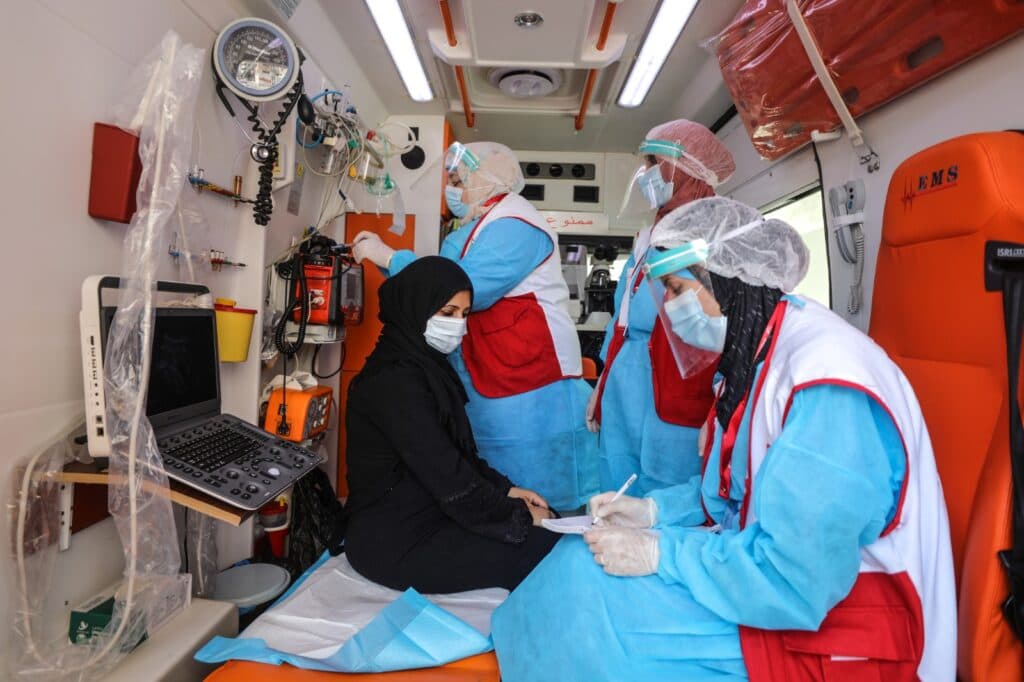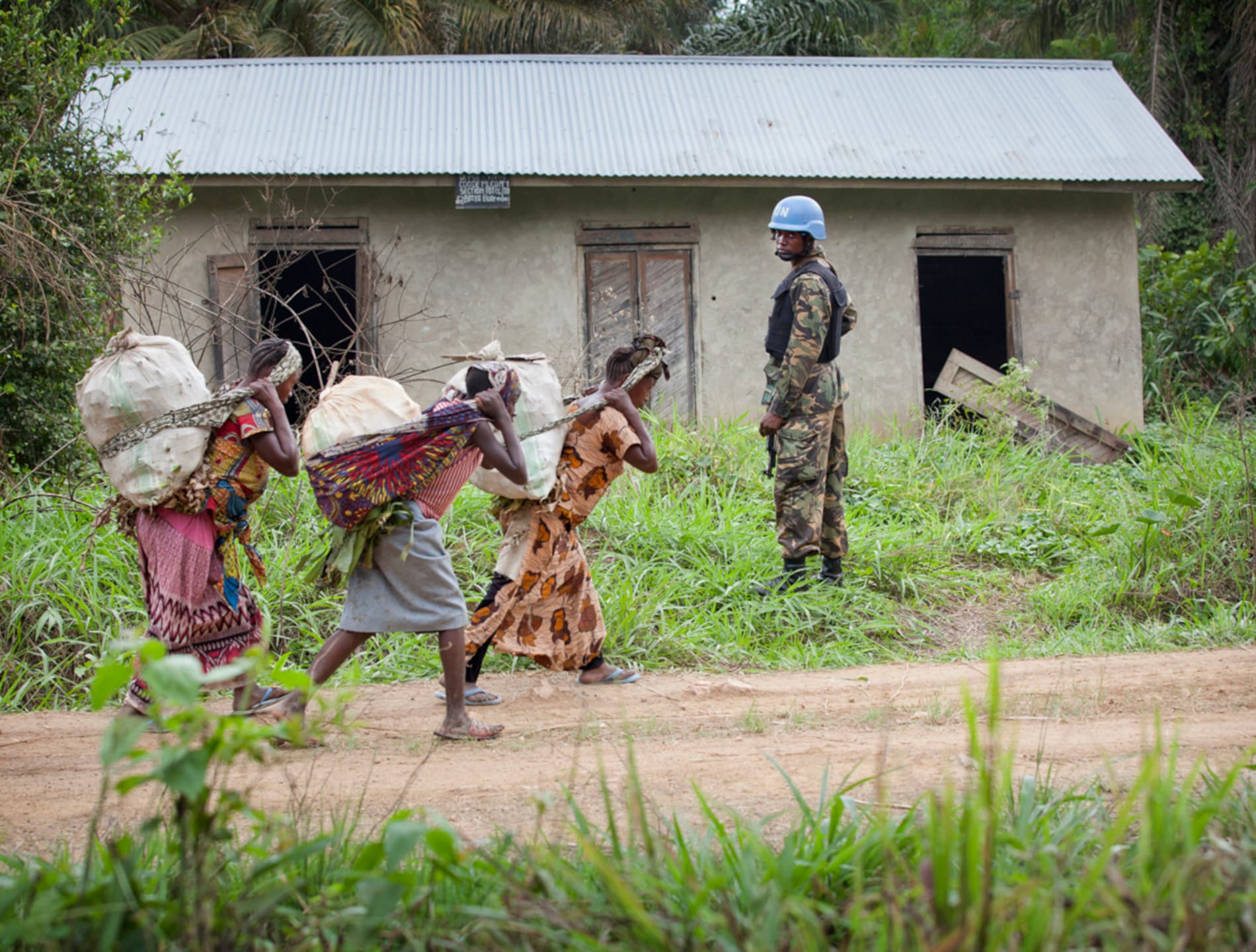
Women and girls in IHL
The protection of women and girls under international humanitarian law.
Women and children represent the largest number of civilian casualties in many conflicts, and women are the primary targets of sexual violence. Women enjoy the general protection under international humanitarian law (IHL), afforded to men and women, as well as specific protection.
Wars today are no longer fought at isolated battle fronts – the battlefield is often in the midst of the civilian population. Civilians, not combatants, make up the largest number of casualties. Among civilians, women often find themselves in particularly vulnerable situations and outnumber men in casualties in most conflicts.
For example, they are sometimes left without their spouses, which can increase the risks of sexual violence and make access to food or water more difficult. However, women are not always victims, but also join armed forces or other armed groups as combatants.
General IHL protection of women and girls
Under international humanitarian law (IHL), women enjoy the general protection as well as specific protection in their role as women civilians or women combatants.
The general protections under IHL apply equally to women and men. All four Geneva Conventions and their Additional Protocols contain, confirmed by customary international law, provisions stating that persons or categories protected shall be 'treated humanely (...) without adverse distinction founded on sex' (article 12 of the First Geneva Convention).
Women who do not take part in hostilities are part of the civilian population and consequently benefit from the general protection of civilians afforded by IHL. Likewise, the general protection for combatants and prisoners of war apply equally to both women and men.
Sexual Violence
Sexual violence remains an abhorrent practice. Women remain the primary, but not exclusive, victims of sexual violence. Acts of sexual violence are strictly prohibited under IHL, but also under international criminal law.
Under IHL, women must be especially protected against any attack on their honour, in particular against rape, enforced prostitution, or any form of indecent assault (article 27 of the Fourth Geneva Convention).
Article 76 of Additional Protocol I states that women must enjoy special respect and must be protected in particular against rape, forced prostitution and any other form of indecent assault.
Special Protection
IHL contains a number of provisions, which provide special protection for women. The foundation for this approach is found in Article 12(4) of the First Geneva Convention and Article 14 of the Third Geneva Convention which hold that persons shall be treated with all due regard to their sex.
The fact that women enjoy additional protection under certain circumstances does not constitute discrimination on the basis of sex (Article 27 of the Fourth Geneva Convention). The prohibition on discrimination does not mean that every differentiation is forbidden, but rather aims to prohibit adverse distinction. ‘Without prejudice to the provisions relating to their (...) sex, all protected persons shall be treated with the same consideration by the Party to the conflict' (Article 27 of the Fourth Geneva Convention).
Special protection for women civilians
When it comes to the additional protection for women as civilians, there are, for example, rules stating that pregnant and nursing women shall be given priority in the distribution of relief services, such as food and medicine. Other provisions afford specific protection for women from rape, enforced pregnancy and other forms of assaults.
Moreover, women civilian internees are afforded with special protection in a number of provisions relating to detention facilities, hygiene conveniences, and supervision. For example, a woman civilian internee must not be searched except by a woman.
Special protection for women combatants
IHL does not includes special protection for women as civilians, but also contains a number of provisions directed to the protection of women combatants, or rather to women prisoners of war (POW) when they are captured.
These rules regulate the conditions of the POW camps or facilities for women. For example, there are rules providing separate sleeping quarters for women and men, rules relating to hygiene conveniences, as well as rules providing that women must be supervised by women only.
Sick and wounded women combatants enjoy the same protection as afforded to sick and wounded soldiers by the general provisions of IHL relating to this category.
Roles of women in armed conflict
Although most combatants are generally male, women too engage in armed conflict as members of the regular forces or other armed groups.
Involvement in a conflict can take various forms: from carrying arms and directly participating in the hostilities to hiding, sheltering, and feeding combatants. Participation can be both voluntary and involuntary. Some states that oblige women to serve in the military through conscription are Eritrea, Israel, and North Korea.
In many conflicts, women are forced to assist armed groups or otherwise face threats to their health and life. Supplying parties to a conflict with food or shelter is normally not considered taking direct part in the hostilities under IHL. Therefore, these women are considered to be civilians.
When women carry arms, however, they are directly participating in the conflict and will be seen as combatants. As a consequence, they can be targeted when taking up arms.
UN Security Council Resolution 1325 on women and armed conflict
In October 2000, the UN Security Council adopted resolution 1325, which has become an important document on women and armed conflict.
The resolution calls on all parties to armed conflicts to fully respect international law provisions relating to the rights and protections of women and girls, and to take special measures to protect them from gender-based violence, particularly rape and other forms of sexual violence. The Resolution also highlights the problem of impunity for international crimes such as genocide, crimes against humanity, and war crimes relating to sexual violence against women.
Moreover, the resolution emphasises the importance of gender mainstreaming in all United Nation’s conflict prevention, resolution, and reconstruction missions.
Women's honour
Many of the provisions on women’s protection deal with women from a stereotypical perspective, assuming that they are weak and that their chastity must be preserved.
The general concept of honour and the specific concept of women's honour in Article 27 of the Fourth Geneva Convention is separated into two paragraphs, in a way that presumes that women's honour is especially linked to their sexual behaviour.
